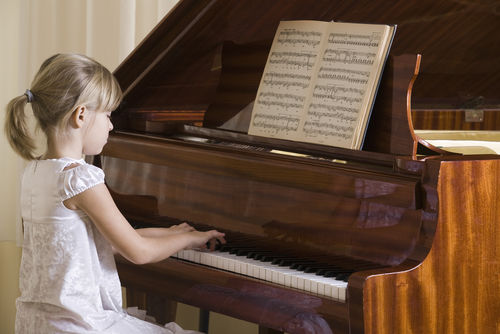For a period of time around seventh grade, I loved to play the piano. The cold keys could be used as the basis for Christmas carols, to express the depths of my adolescent angst, or simply to add something beautiful to the day.
Quickly, I progressed from “Row, Row, Row Your Boat” and a simplified “Ode to Joy” to the original “Minuet in G” and other three page pieces from the difficult level three book.
My delight in the piano dampened with a convergence of two factors. First, by age 14, I had internalized what writer and thinker Wendell Berry calls the professionalization of American life: the idea that there should be some people who know a lot about one subject, to the exclusion of all others.
The non-specialists should leave that subject to the professional. Music and entertainment are best left to the professional musicians. When I realized that I would never be one of them —improved though I was, my talents were not at the concert pianist level — I was no longer sure of the point of continuing to play and improve.
While my view was, perhaps, extreme, it is not that unusual — either sidelining a talent in favor of more practical things, or trying to use that talent to make a career. This idea of professionalization is most evident in domestic life: we order take-out or buy ready-made food, we are entertained night after night by television and movies, and we listen to professional musicians rather than participate in making a joyful sound.
When we abandon our talents to the professionals, we miss out on the opportunity to use our talents in the service of love — to, as Mother Teresa urged, do small things with great love.
Mother Teresa’s words fly in the face of over-professionalization in daily life. Our own particular talents, however small, should be used in the service of love for those around us.
Those with musical talents, whether they play in the church choir or the living room, offer something beautiful or fun to those around them. People with an eye for photography are able to capture the lovely, small moments of the day, giving the memories an extra spark.
Good cooks offer delightful meals to their families and the wider community, whether that’s tightening the ties that bind in a potluck or bringing a warm meal to new parents.
Friends who play music, even if they cannot play to the same standard as a professional, add a warmth to a gathering when they lead others in song or play a self-made silly tune. A homemade meal transmits comfort to a grieving family, welcome to a baby, and hospitality to friends in a way that bringing food from the best chef cannot.
When we are able to use the gifts God gave us in the service of others, we are becoming who we are meant to be.
Anamaria Scaperlanda Biddick writes from Oklahoma City.

